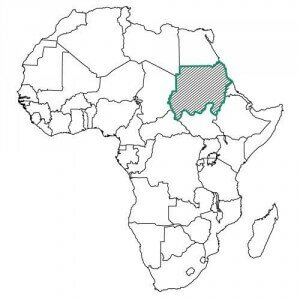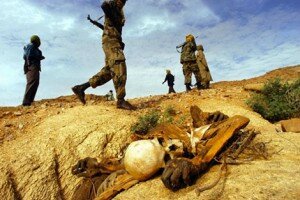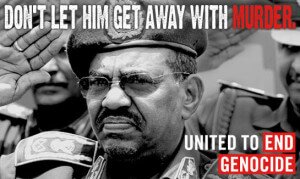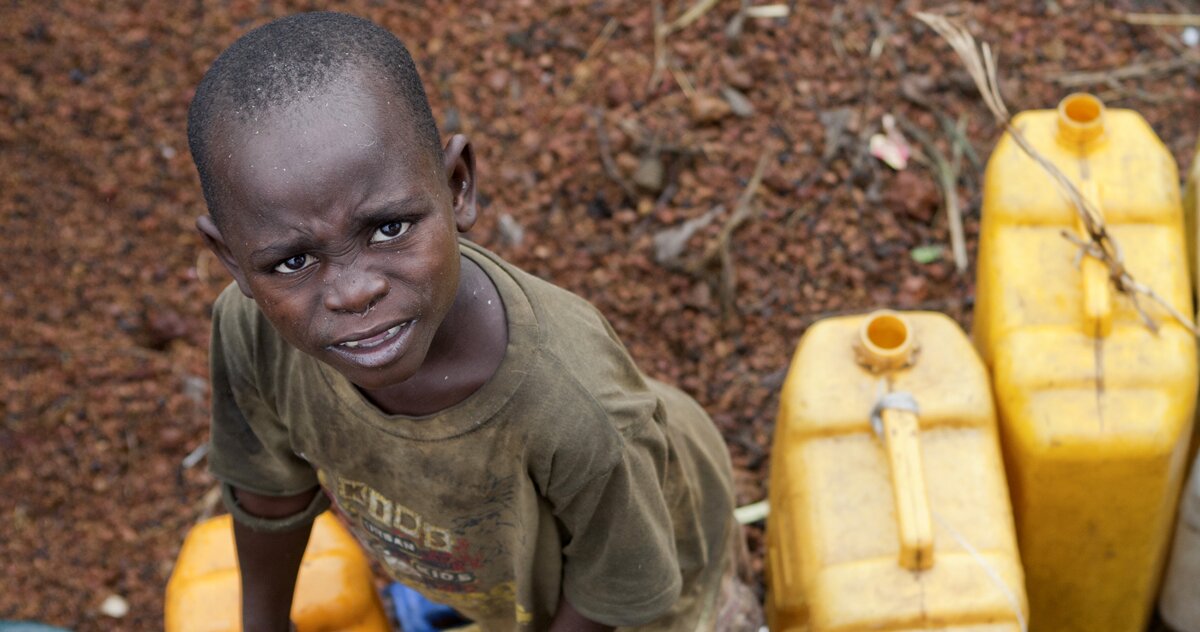Will Lobbyists Succeed in Improving Sudan’s Image?
Sudan is capitalizing on the lack of attention to its atrocities and these lobbyists are helping. 0
0  0 likes
0 likes
Blog Sub Title
Blog Sub Title
 The Situation
The SituationTo this day, the Sudanese government continues its long-standing policy of attacking innocent civilians. In addition to the ongoing crisis in Darfur, forces under the command of Sudanese President Omar al-Bashir have carried out attacks against civilians in the disputed Abyei territory, and South Kordofan and Blue Nile States.
Throughout its offensives, the Sudanese government continues to commit war crimes and crimes against humanity against its own civilians. Well over a million civilians have been displaced or severely affected by violence throughout the last two years.
Indiscriminate aerial bombardments and ground attacks are preventing farmers from planting crops in the southern border regions of South Kordofan and Blue Nile, and denial of international humanitarian aid has set up a crisis that could near famine conditions.
 As a colony of the United Kingdom, the British Civil Secretary in Sudan formalized a policy of separate governance for north and south Sudan in 1930 because of their many religious and cultural differences. By 1946, as World War II had ended and the global movement towards decolonization gained momentum, Britain decided to merge north and south Sudan into a single administrative region. It was this unified country that would be granted independence in 1956. The First Sudanese Civil War (1955-1972) was fought between the northern government and south Sudanese rebels demanding a return to the 1930s division that would grant them greater representation and regional autonomy.
As a colony of the United Kingdom, the British Civil Secretary in Sudan formalized a policy of separate governance for north and south Sudan in 1930 because of their many religious and cultural differences. By 1946, as World War II had ended and the global movement towards decolonization gained momentum, Britain decided to merge north and south Sudan into a single administrative region. It was this unified country that would be granted independence in 1956. The First Sudanese Civil War (1955-1972) was fought between the northern government and south Sudanese rebels demanding a return to the 1930s division that would grant them greater representation and regional autonomy.
A peace agreement between the warring north and south in 1972 resulted in an 11 year cease-fire until unresolved tensions reignited into the Second Sudanese Civil War (1983-2005) that was again fought for southern autonomy. The government combination of combat tactics and conflict-induced famine led to the death of an estimated 2 million Sudanese during the Second Sudanese Civil War, marking it the deadliest conflict in civilian causalities since World War II.
One of the conditions of the 2005 peace agreement between the northern government and southern rebels was the establishment of a referendum on whether the region should remain part of Sudan or become an independent country. In February of 2011 the referendum showed almost 99% of southern Sudanese had voted for independence, and by July of 2011, South Sudan became an independent state.
However, since 2011 violence has escalated in regions along Sudan’s border with the newly independent Republic of South Sudan. Several issues, including border demarcation and an agreement over oil, remain unresolved and threaten a return to war between Sudan and South Sudan.
 With the international community focused on resolving the conflicts between the north and the south, a growing conflict in Darfur was virtually ignored.
With the international community focused on resolving the conflicts between the north and the south, a growing conflict in Darfur was virtually ignored.
In 2003, the situation exploded as the government of Sudan responded to a rebellion in the Darfur region of Sudan, beginning a genocidal campaign against civilians that resulted in the deaths of over 300,000 and the displacement of over three million Darfuris.
In 2010, the Sudanese government and the Darfuri rebels signed a ceasefire agreement and began long-term peace talks known as the Doha peace forum. During these negotiations, steps were made to provide Darfur with increased regional autonomy under the Sudanese government rather than allow it a referendum to become an independent state like South Sudan.
However, since 2011, there has been no additional progress on these agreements and violence in the region continues to escalate with over 400,000 newly displaced in 2014.
 Abyei: According to the 2005 peace agreement, the disputed region of Abyei was to hold a referendum on whether it wanted to join an independent South Sudan or remain part of Sudan. However, in May 2011 Sudan invaded Abyei, displacing over 110,000 civilians and leading to the deployment of a UN Interim Security Force of 4,200 peacekeepers. The referendum still has not been held and 48,000 people remain displaced.
Abyei: According to the 2005 peace agreement, the disputed region of Abyei was to hold a referendum on whether it wanted to join an independent South Sudan or remain part of Sudan. However, in May 2011 Sudan invaded Abyei, displacing over 110,000 civilians and leading to the deployment of a UN Interim Security Force of 4,200 peacekeepers. The referendum still has not been held and 48,000 people remain displaced.
Blue Nile and South Kordofan: According to the North-South peace agreement, two Sudanese states bordering South Sudan were supposed to carry out popular consultations about how they would fit into a new Sudan, however fighting between the Sudanese Armed Forces and rebels broke out in June and September 2011. Since then, the government of Sudan has utilized its military forces to launch attacks in civilian areas including targeting churches and schools as well as fields essential to the livelihood of civilians blocked by the government from international aid.

In fighting rebels, the Sudanese government uses starvation as a weapon of war. Attacks on civilians disrupt the crucial cultivation season, resulting in emergency levels of food insecurity putting half a million civilian lives at risk.
The Sudanese government has cut off nearly all access to rebel-held areas and is preventing humanitarian organizations and the UN from providing desperately needed aid.
The Sudanese government remains willing to use deadly force against the Sudanese people to further his own political goals. We call on the U.S. government to respond to the Sudanese government’s atrocities against civilians by:

Sudan's president, Omar al-Bashir, the same man responsible for genocide in Darfur has continued his attacks on Darfur and expanded his killing into the states of South Kordofan and Blue Nile – slaughtering men, women and children and displacing hundreds of thousands of people.
Throughout its offensives, the Sudanese government continues to commit war crimes and crimes against humanity against its own civilians. The people of Darfur, South Kordofan and Blue Nile need you to take action. Now.
We can not stand by and watch as Bashir gets away with murder. Please tell Secretary of State John Kerry to stop looking the other way as Bashir continues to wage war against the people of Sudan.
ACT NOW


 Like the Cause &
Like the Cause &  Spread the Word
Spread the Word
 0 shares
0 shares 0 likes
0 likes
 0 shares
0 shares 0 likes
0 likes

 0 shares
0 shares 0 likes
0 likes

 0 shares
0 shares 0 likes
0 likes
Help stop genocide before it starts. Ask your Senator: Support the Genocide and Atrocities Prevention Act.
Act Now!